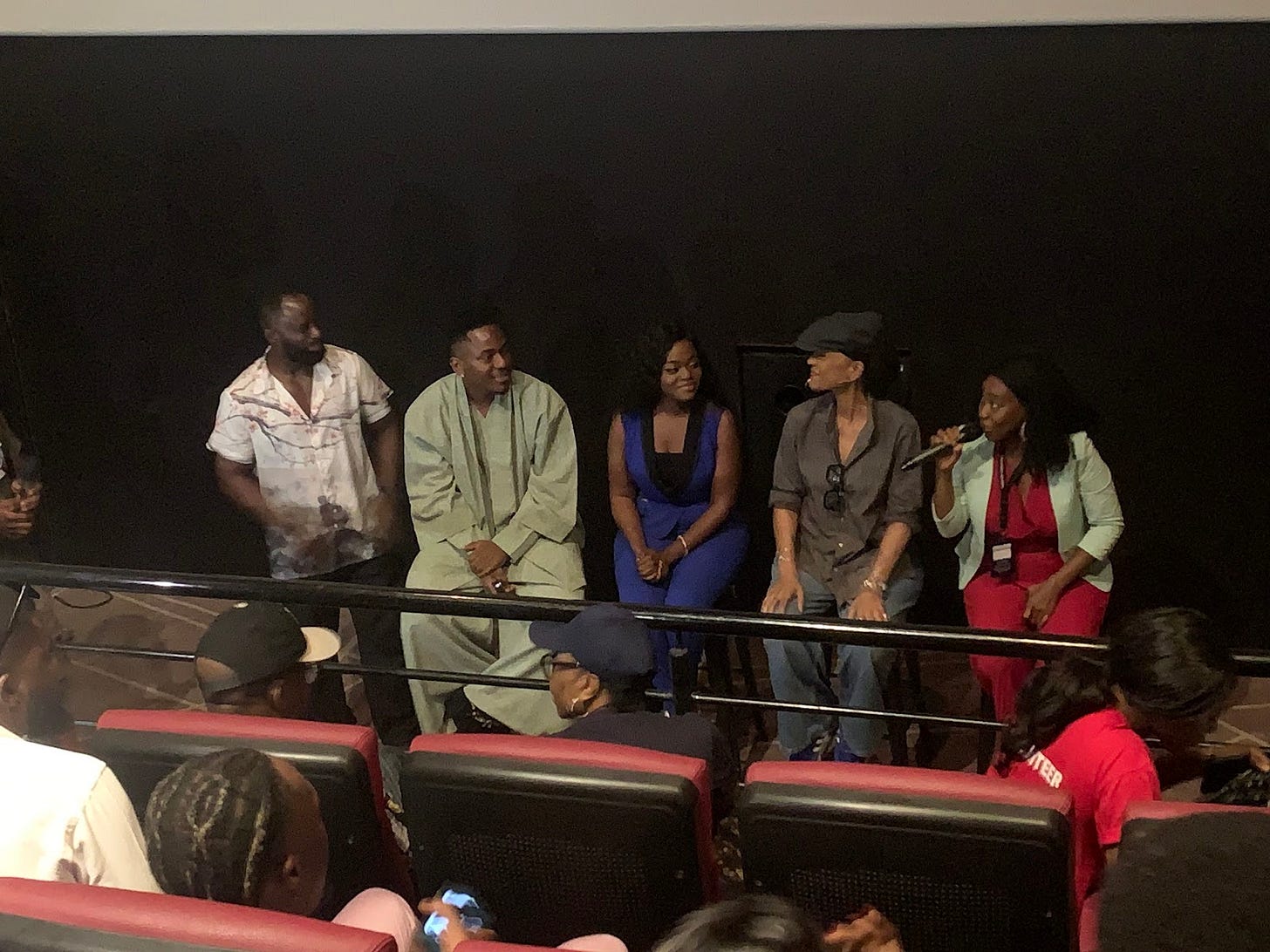AFRIFF Dispatch 4: Orah Impresses, Tarella Struggles
In this dispatch, Matilda details her struggles with AFRIFF's poor organisation, snippets of warm conversations and thoughts about two films, Orah and Tarella.
My AFRIFF experience today started with a conversation. A jolly conversation about old Nollywood that reinforced my nostalgia and shone light on areas I had previously missed. An older colleague mentioned that there’s something special about filmmakers who are artistic and academic. I agreed and hummed to myself as I thought about the film possibilities ahead of me for the day.
With this energy, I headed to the cinema for my first film of the day, Orah. To be clear, Orah was my most looked-forward-to-movie for this year’s AFRIFF and I particularly wanted to see it because of the genre it seemed premised upon. It didn’t disappoint. It tells the story of a mother who is set on avenging her son.
What I found most satisfying was the ending and triumph of vengeance in a society where justice cannot be found. The film portrays the parallels between the justice systems of two distinctly different countries and intricately establishes the fact that everyone has a price, be it money or a life for a life.
More importantly, the film portrayed the struggles of navigating the fine complexities of abuse and the infinite weight it bears on the family. The best acting came from the lead actor, Oyin Oladejo who plays Adaorah.
She captured the heart of the audience, holding them spellbound with her excellent face acting. Every facial muscle worked hard when she broke down, letting her anguish wash over the audience so intimately that we drowned with her and wanted the same thing she wanted — justice and vengeance.
After Orah, I went to see Lolo Eremei’s Tarrella, the African-reimagined fairy tale of the classic Cinderella. Starring RMD, Timini Egbuson, Elvina Ibru, and Okawa Shaznay, this was a different and highly ambitious film. In an attempt to put an African spin on a classic fairytale, the myth of the story was lost in transit.
While I loved Elvina’s portrayal as the wicked stepmother, very few other actors were able to carry their characters convincingly. Also, some lines said and moments shared were just fawny to hilariously unbearable in a quest to Africanize the Cinderella story.
However, what the film lacks in story originality, it makes up for in costume and object symbolism. I was struck by the use of the language system. The intricate representation of signs and symbols to depict the native nature of the African literacy system was critical. This is a significant way of debunking the common erroneous myth that pre-colonial Africa was illiterate. I picked this up and wanted to know the director’s motivation on this angle particularly so I asked her during the Q&A.
Her response was astute. She said she is a professional researcher who has collaborated on other projects like Riona and Diiche. Going by this, it was important to get critical facts of periods right and to debunk education myths of ancient Africa. As she responded to my question, I immediately drew parallels to the ancient Egyptian hieroglyphs and even the notable Adinkra symbols. It reminded me of the conversation from earlier in the day about filmmakers who are also academic or theoretical. There surely is a uniqueness with them.
The wait for my final film of the day began at this point. Funmilayo Ransome Kuti was not to air till 8:10 pm, so I had a three-hour window. I decided to take a walk and get back to networking. I had more conversations but if I had known, I should have taken a longer walk because things turned bad fast when the aftermath of messy disorganization kicked in for AFRIFF.
I got back and the four cinema screens were filled with viewers from the previous film which should have ended before 8:10 pm. I found myself standing among a crowd of people in the cinema hallway. By 8:40 pm, I was still standing and all I heard was that a specific screen was being assigned to special guests. It became clear that we, the crowd outside, weren't going to get in. I left the hall irritated. It didn’t help that I now had gnawing lower back pain and a banging headache from standing for an hour with a very noisy crowd.
Something happened on my way out of Landmark. A guy stopped me and introduced himself as an actor. He referred to the question I asked saying he was part of the screening of Tarella. I imagine he felt the need to explain because my irritated look from the crazy cinema hall must have stayed on my face.
I had to explain the situation going on inside and he said he could tell that I was pissed. It really dawned on me in that moment how messed up the scheduling and organization issues were. He wanted to talk about the question I asked and that interaction positively changed the course of my evening. I went home feeling better.





I hope AFRIFF is able to go smoother next year
I NEED to see Orah 😫😫😫